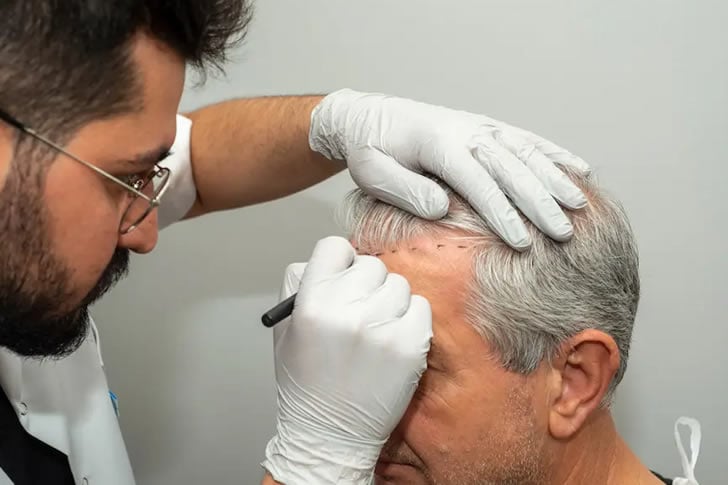Experiencing hair thinning can affect self-esteem. Here are some effective ways to address this issue and boost your confidence.

Hair thinning affects both men and women for various reasons such as genetics, hormonal changes, stress, or medical conditions. Recognizing the underlying cause is the first step toward finding an effective treatment.
A primary cause of hair thinning, inherited traits from your parents.
Imbalances due to pregnancy, menopause, or thyroid issues.
Both physical and emotional stress can cause temporary hair loss.
Conditions like alopecia, scalp infections, and some autoimmune diseases.
Lack of essential nutrients including iron, vitamin D, and protein.
Dealing with hair thinning can impact self-esteem, but there are ways to cope and maintain a positive self-image.
Practice affirmations and focus on your positive traits.
Distract yourself with activities you enjoy, boosting confidence and well-being.
Seek out friends and family who can offer encouragement.
Consider therapy or counseling if needed.
Hair transplants are a critical option for those experiencing significant hair thinning. It's essential to weigh the pros and cons before making a decision.
Hair transplants involve moving hair follicles from one part of the body to another. There are mainly two types:1.
Apart from hair transplants, there are other treatments to consider.
A topical treatment that can slow hair loss and promote new growth.
A prescription medication that can help reduce hair loss in men.
Injections of your plasma into the scalp to stimulate hair growth.
Low-level laser devices to encourage hair growth.
Proper hair care can minimize hair thinning and improve the health of your hair.
Use mild shampoos and avoid hot water.
Reduce the use of dryers, straighteners, and curlers.
To give the appearance of fuller hair.
Regularly massage your scalp to stimulate blood flow.
Lifestyle plays a significant role in hair health. Making certain changes can improve the condition of your hair.
Incorporate foods rich in vitamins, minerals, and proteins.
Drink plenty of water to keep your scalp hydrated.
Consider taking biotin, iron, and vitamin D after consulting a healthcare provider.
Regular physical activity can reduce stress.
Practice yoga, meditation, or deep breathing exercises.
If your hair thinning is persistent or worsening, it’s necessary to consult a healthcare professional.
Rapid hair thinning or bald patches.
Itching, redness, or pain on the scalp.
If hair loss is accompanied by other health issues like fatigue or weight changes.
Addressing hair thinning can be challenging but taking steps such as considering hair transplants, practicing self-care, and seeking professional advice can significantly help. Focus on comprehensive approaches to improve both hair health and self-esteem.
Explore the Tranquil Bliss of Idyllic Rural Retreats

Ultimate Countdown: The 20 Very Legendary Gaming Consoles Ever!

Understanding Halpin and its Influence

Affordable Full Mouth Dental Implants Near You

Discovering Springdale Estates

Illinois Dentatrust: Comprehensive Overview

Embark on Effortless Adventures: Unveiling the Top in Adventures Made Easy Outdoor Equipment

Unveiling Ossur Valves: Innovation in Prosthetics

Unlock the Full Potential of Your RAM 1500: Master the Art of Efficient Towing!
